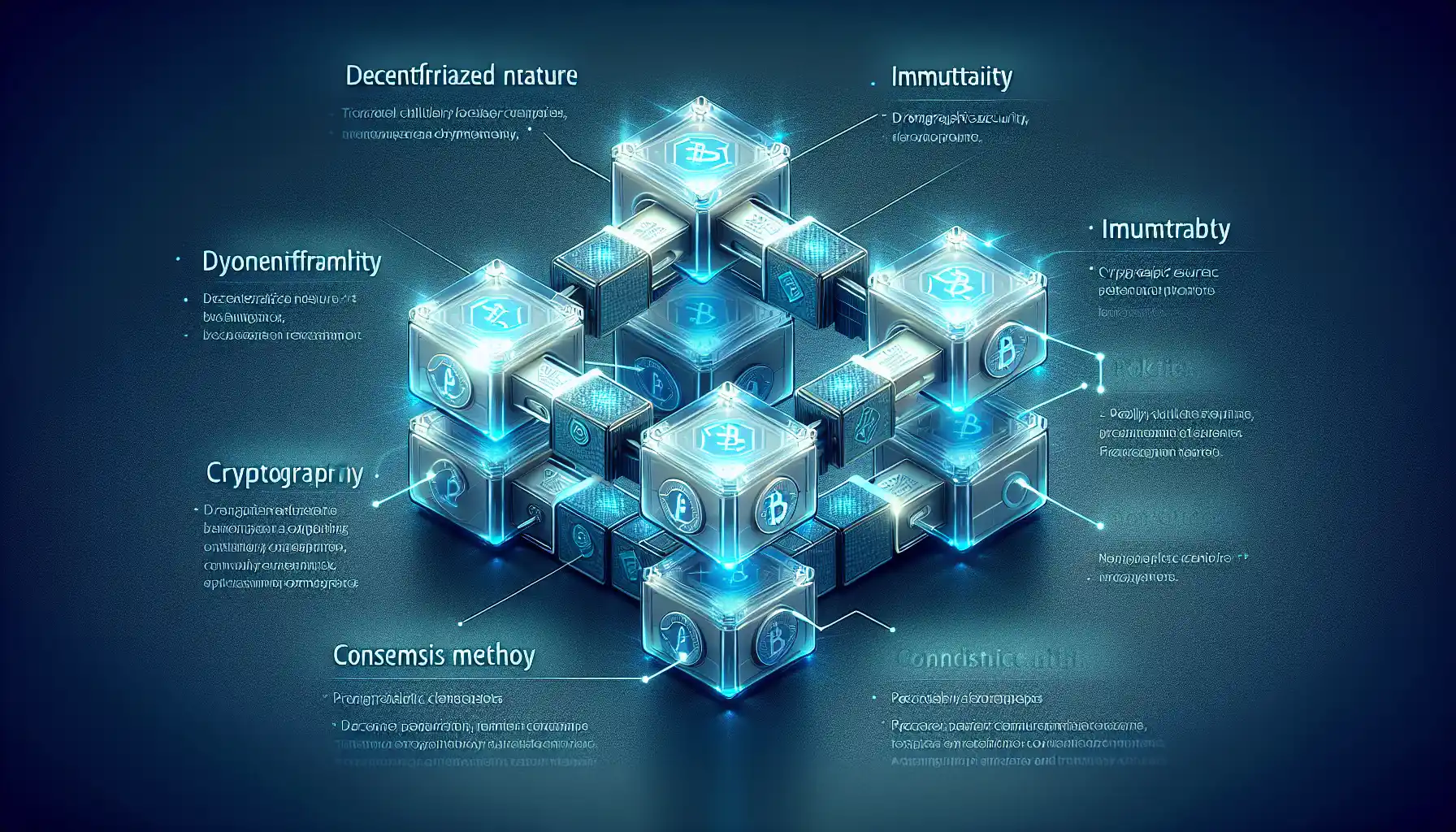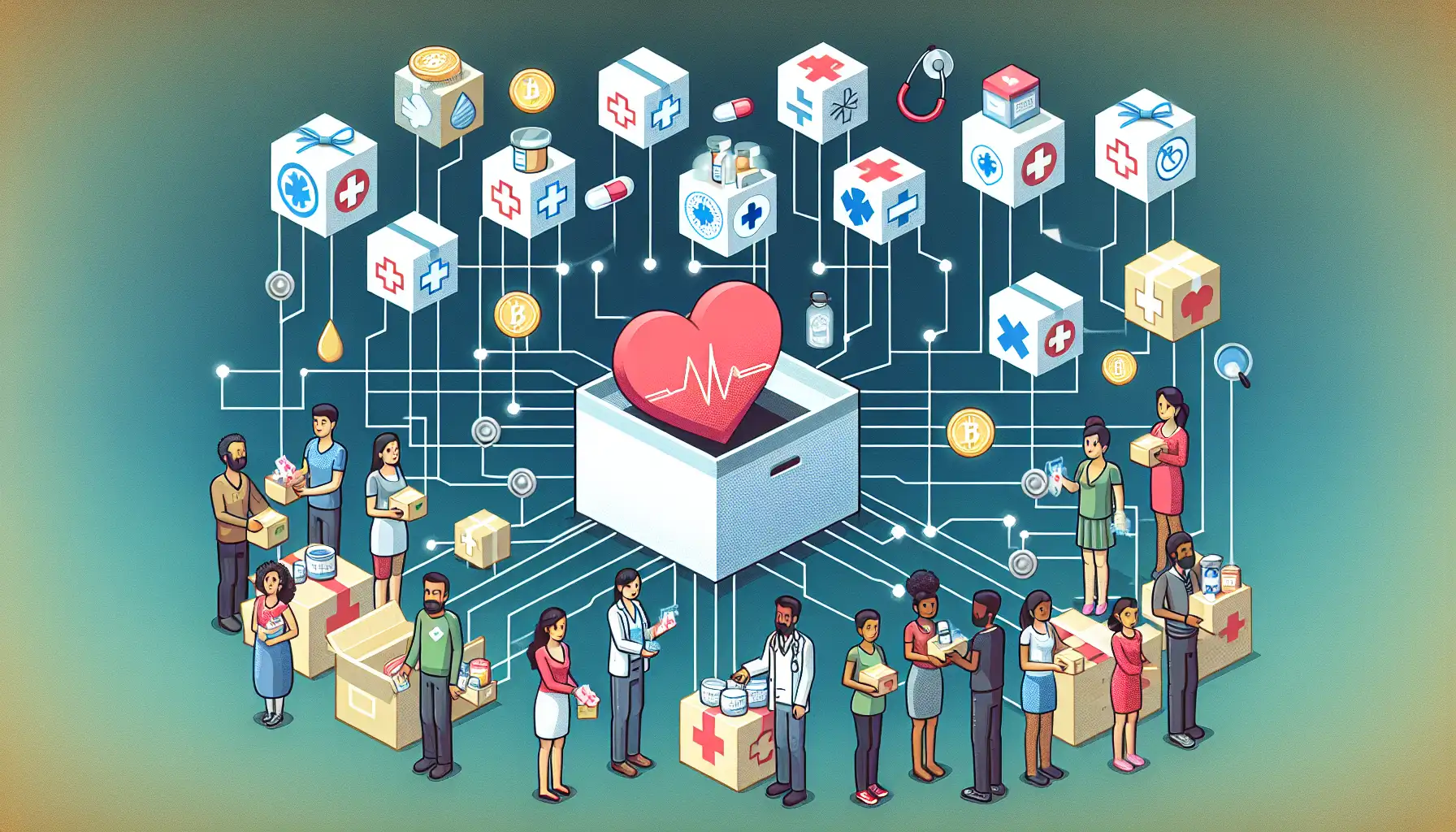The Role of Blockchain Technology in Revolutionizing Medical Supply Chains
Unveiling a New Era of Trust in Medical Donations
Imagine this: a rural clinic in need of lifesaving medical supplies receives a shipment, but no one knows where it came from, if the supplies are genuine, or if they’ll even be safe to use. It’s like trying to navigate a maze blindfolded. Enter
blockchain technology, the hero we didn’t know we needed. With its ability to create an unbreakable chain of verified data, blockchain injects trust and clarity into every step of the donation process.
Here’s how it works:
- Real-time tracking: Every donated item—from surgical masks to insulin—gets a unique digital fingerprint that’s recorded on the blockchain. Anyone can trace its journey, ensuring nothing gets lost or tampered with.
- Authenticity guaranteed: Counterfeit supplies? Not anymore. Blockchain verifies the origins of each item, giving recipients confidence in their quality and safety.
Think of it as a window into the soul of the supply chain—transparent, unalterable, and accessible to all. For once, we can truly see where help is coming from, and that changes everything.
Key Features of Blockchain That Ensure Transparency and Trust

Unpacking Blockchain’s Secret Sauce for Clearer Medical Supply Donations
Imagine being able to trace every single donated vaccine or surgical mask as if it were a precious package on a GPS tracker. That’s the magic of
blockchain technology. It’s not just some tech jargon—it’s a system that thrives on accountability and visibility, two things desperately needed in the world of medical donations.
With blockchain, every action—whether it’s a donation made, a shipment sent, or a delivery confirmed—is logged on an unchangeable digital ledger. This means no shady backdoors or mysterious “missing” supplies. Every step is crystal clear and accessible to everyone involved, from donors to hospitals.
Let’s break it down:
- Immutable records: Once data is added, it’s locked in tighter than a bank vault. No edits. No deletions.
- Real-time tracking: Want to know where those donated syringes are? Blockchain gives you live updates like a trusted friend texting you.
- Decentralization: Forget single points of failure—data is stored across multiple nodes, making corruption nearly impossible.
In essence, blockchain doesn’t just improve transparency; it puts the power back into the hands of those who truly care about saving lives. It’s like shining a flashlight into a dark, cluttered room—you can finally see what’s really going on.
Real-World Applications of Blockchain in Medical Donations

Revolutionizing Trust in Medical Donations
Imagine this: you donate to provide life-saving medical supplies, but uncertainty clouds your mind. Where does your contribution go? Who benefits? Enter
blockchain technology, the unsung hero that turns this guessing game into a crystal-clear picture.
With blockchain, every step of the donation process is recorded on an unchangeable digital ledger. Think of it as a diary that can’t be edited—every transaction, shipment, and delivery is etched into its pages forever. For example, when a box of insulin is donated, blockchain tracks it from the donor to the hospital it serves. No detours, no mystery.
Now, let’s talk about the magic of transparency. Here’s what blockchain brings to the table:
- Real-time tracking: Know exactly where your donated supplies are at any given moment.
- Immutable records: Fraud becomes nearly impossible when every action is verifiable.
- Global reach: Blockchain bridges gaps between donors and recipients across continents.
It’s not just technology—it’s peace of mind. You’re not just giving; you’re becoming part of a network that transforms lives with clarity and trust.
Challenges and Solutions for Implementing Blockchain in Healthcare

Breaking Down Barriers in Medical Donations
Imagine a world where every donated medical supply reaches its intended destination without a shadow of doubt. Sounds like a dream, right? But here’s the reality: traditional systems are often tangled in red tape, and tracking donations can feel like chasing a ghost. This is where
blockchain technology swoops in like a superhero with a digital cape.
Blockchain doesn’t just log transactions—it transforms trust into a tangible thing. Think about it: every donated syringe, bandage, or vial of medicine gets recorded on an immutable ledger. No more “he said, she said” scenarios. Instead, you get crystal-clear visibility from donor to recipient.
- Donors can verify their contributions actually reach those in need.
- Hospitals and NGOs gain confidence that their supplies aren’t lost in transit.
- Fraud? It becomes a relic of the past.
Take, for example, a life-saving vaccine shipment to a rural clinic. With blockchain, anyone can trace its journey step by step—like following breadcrumbs through a forest. The result? Peace of mind, fewer delays, and lives saved. That’s the magic of transparency powered by
blockchain innovation.
Future Prospects of Blockchain in Enhancing Global Medical Aid

Breaking Down Barriers with Blockchain in Medical Donations
Imagine this: a child in a remote village is waiting for life-saving medication, but somewhere along the supply chain, donations disappear like footprints in shifting sand. Enter
blockchain technology, the game-changer that turns chaos into clarity. It's like giving every pill, bandage, and syringe its own digital passport, ensuring nothing gets lost in translation—or transit.
With blockchain, donors and organizations can track medical supplies from start to finish. Think of it as peeling back the curtain on a theater production:
- Real-time updates: Know exactly where supplies are, whether in a warehouse or en route to clinics.
- Immutable records: Every step is logged and locked—no tampering, no shady business.
But it’s not just about tracking; it’s about trust. Imagine donating and seeing proof that your contribution reached a refugee camp in Syria or a rural hospital in Uganda. Blockchain gives you that reassurance. It replaces doubt with confidence, turning donors into heroes who know their efforts truly matter.



